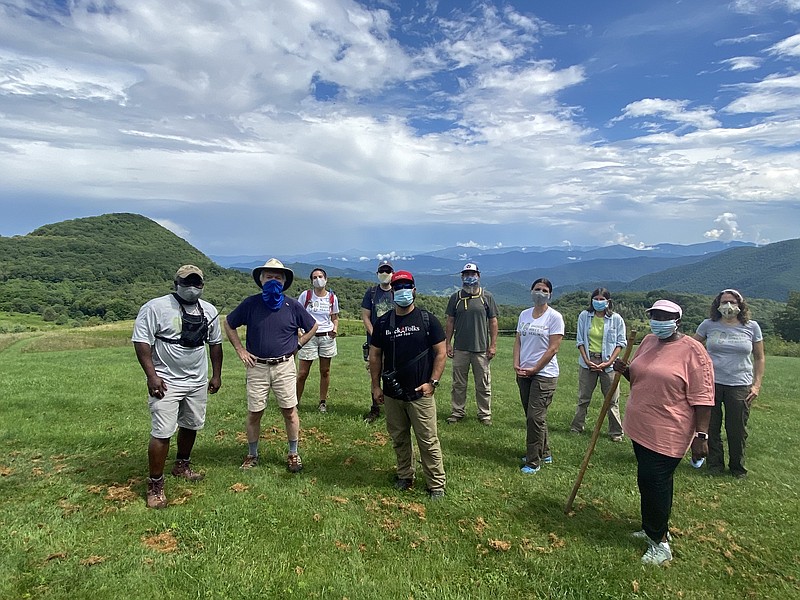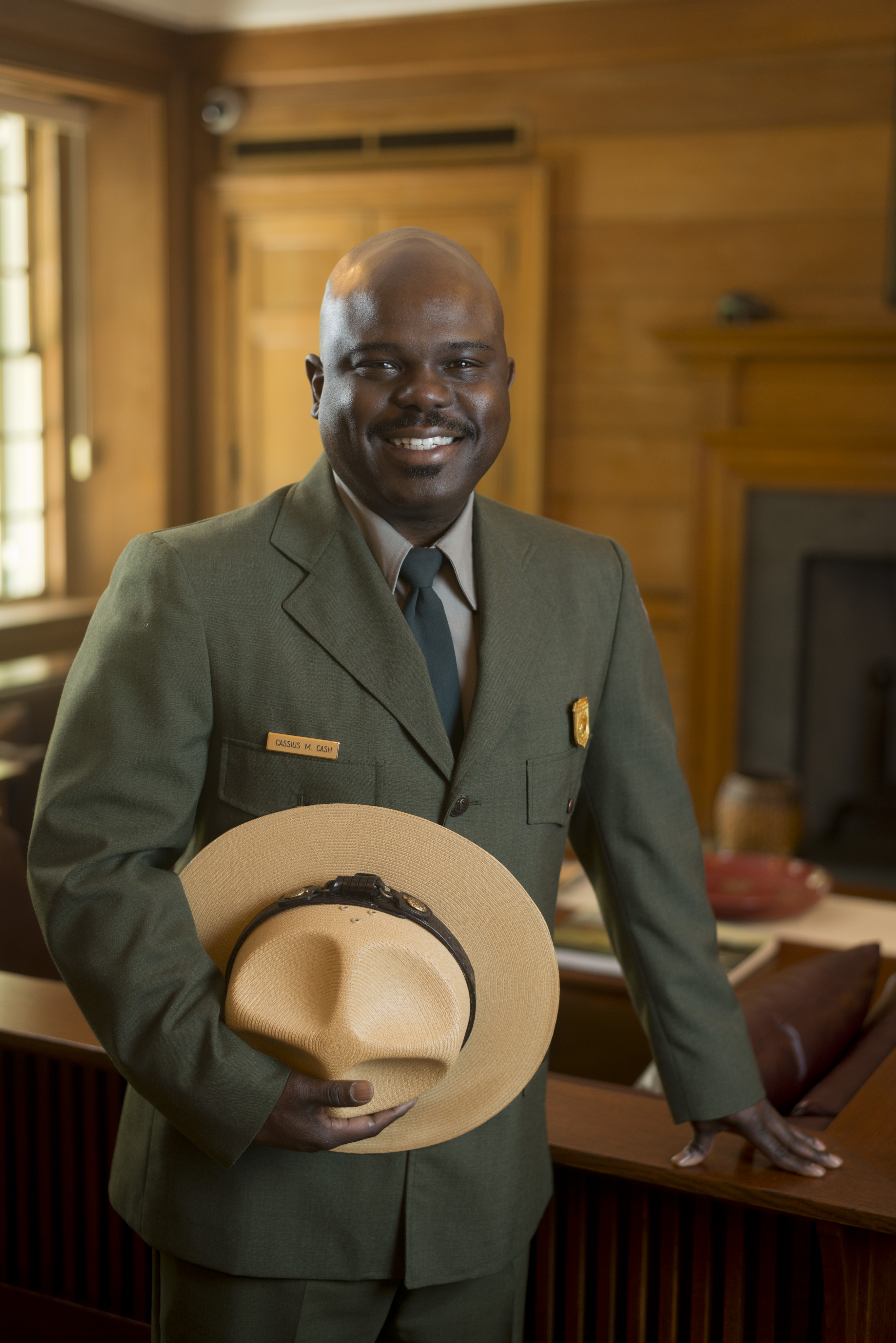Name: Cassius Cash
Age: 52
Occupation: Superintendent of Great Smoky Mountains National Park
Hometown: Memphis, Tenn.
Cassius Cash knew about the healing power of the Great Smoky Mountains long before the upheavals of 2020 - a pandemic that led to mass quarantines and a season of social unrest after the killing of George Floyd Jr. by police last spring in Minneapolis.
"I tell people I always come out of the woods feeling better than when I went in," says Cash, who became the first Black superintendent of Great Smoky Mountains National Park in 2015.
The park, which is within a one-day drive of half the United States' population, draws over 12 million visitors a year, and set records last year for attendance as Americans looked for a respite in nature from their cooped-up lives.
Cash, a native of Memphis, grew up watching the Mutual of Omaha's "Wild Kingdom" television series. He says he got his personal introduction to the outdoors through Memphis Boy Scout Troop 511.
Now, he's trying to offer the park as therapeutic relief for people stressed by the pandemic and social unrest.
Last year, Cash conceived Smokies Hikes for Healing, a series of eight treks in Tennessee and North Carolina that served as outlets for discussions about racial diversity. Cash, whose father was a Memphis police officer, has thoughts on both sides of the issue, he says.
Here, in his own words, he shares some of them.
* When you look at what COVID was doing to our country, not just economically but also to our mental health, the George Floyd thing really pushed us mentally to a different level. [I thought] "What's happening to our country?"
* I found myself in a very difficult place mentally because of the George Floyd situation, because my dad and two brothers were police officers in Memphis. [I was] trying to understand both sides of that equation: of having family members serve in an occupation that I have known all my life - and I love - but, at the same time, seeing someone that looks like me die right before my very eyes.
* I tried to go into the park to make sense of this, you know, doing a hike. And sure enough, I found myself being re-energized and optimistic.
* I was thinking to myself, "If this did it for me, why wouldn't it help members of my community that I love so much?"
* We had over 250 people apply for these [eight] hikes. What that told me was people needed a platform to talk.
* I've met people from all walks of life [on the hikes]. I've met police officers on these hikes. I've met immigration lawyers. People in interracial relationships that have had to deal with this. I've had white families that have adopted a Black child. They were all trying to unravel some of the things they were experiencing.
* [Hikes for Healing] was one of the most transformative experiences that I've ever had in my life. When you look at the most diverse ecosystem in the world, and you talk about how that diversity makes this place we call the Smokies great, I thought it would be great if we used that same analogy on how there's strength in [human] diversity. Why can't we use that to [find] a better tomorrow?
* It was amazing to see the transformation, to see 10 people [per hike] coming in as strangers, not talking to one another, [then later] getting back to the parking lot and hugging one another, with tears.
* [During the pandemic,] the park represents cleanliness: clean air, clean water, space. The park allows folks to regain their freedom, because there was a sense of being trapped [by COVID-19 restrictions]. The park has a healing property that allows people to leave better than when they came in, and to do it in a safe way.
* I don' t care who you are, if you are trapped in the house, the park was the first thing people [wanted to] get to. I think people in the younger generations began looking at the park in a different way.
* It was the Boy Scouts that allowed me to have this IV drip of [outdoor] experiences. We take kids that have never been in the outdoors on a bus trip and tell them about trees. We say, "This is all yours and you can come any time." We expect an instantaneous connection, and that's not happening. With Boy Scouts you can ease into this relationship. I had the best of both worlds living in an urban area but looking forward to camp every summer with the Boys Scouts.
* On my watch, I've respected my duty to preserve the [park] and ensure that the resources are going to be [used] by people in all walks of life.

